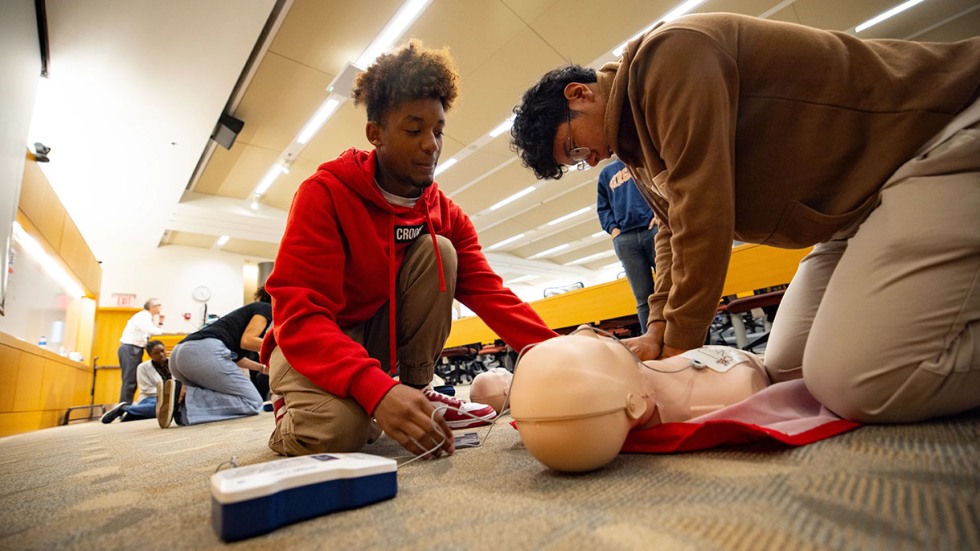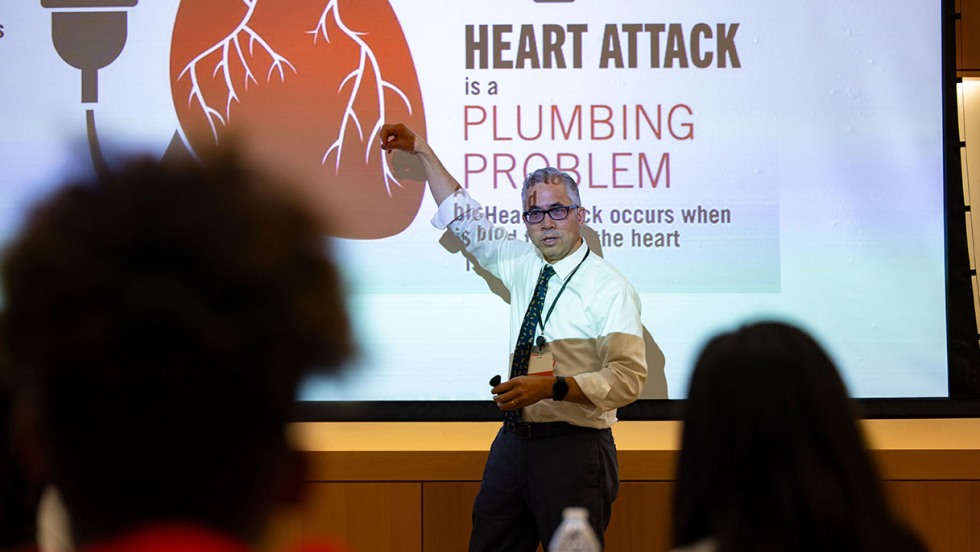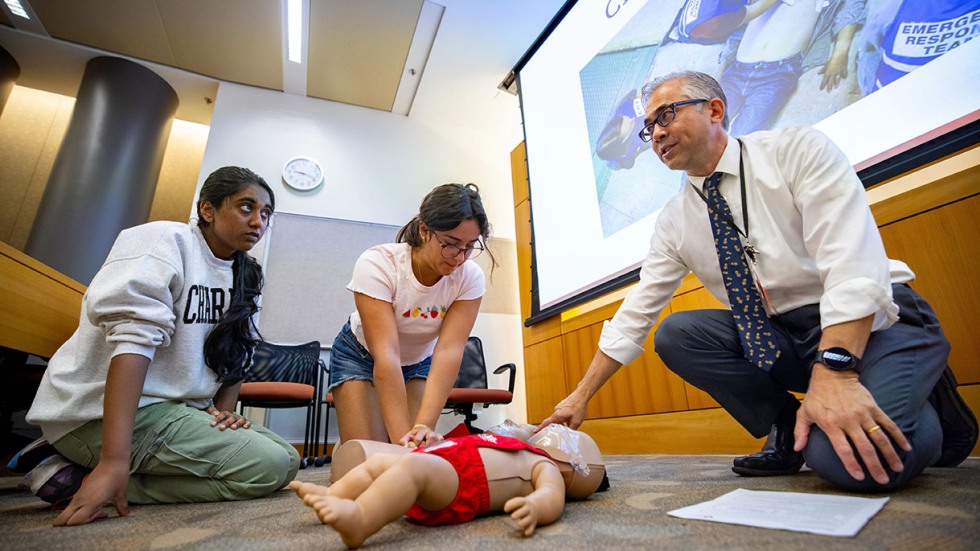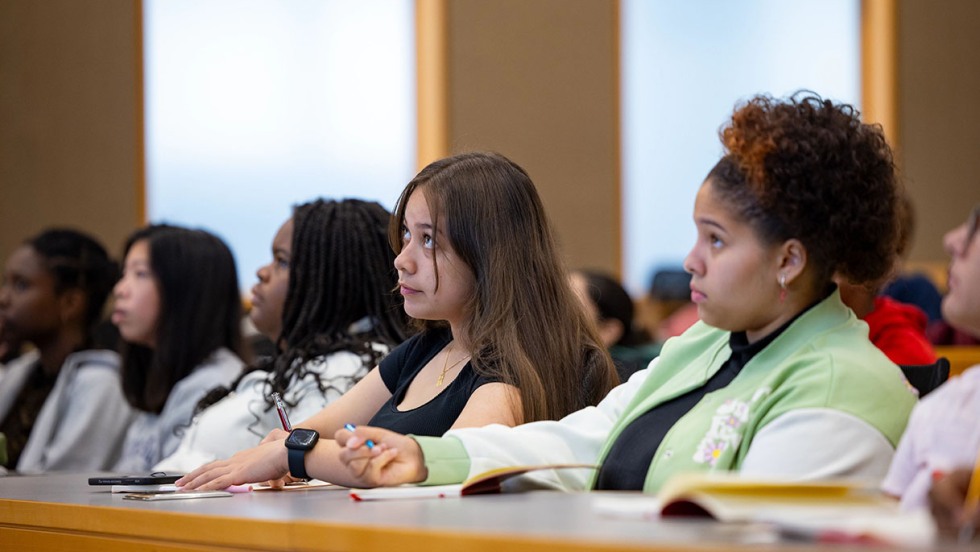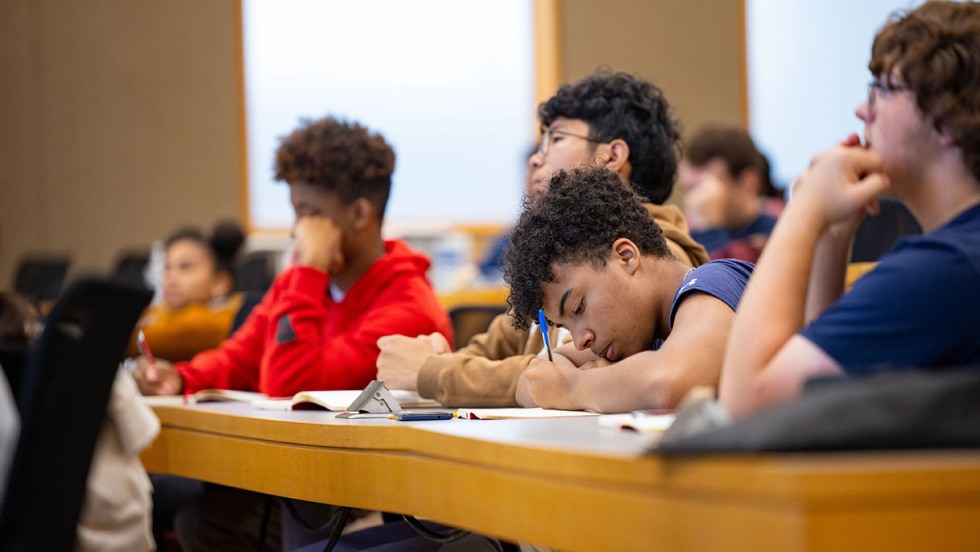PROVIDENCE, R.I. [Brown University] — It’s one thing to put on a white coat and play doctor — but another thing entirely to practice taking a patient’s medical history and vital signs, dissect a cow’s heart, solve patient case studies and master basic life support skills.
That’s what more than a dozen students from Providence-area high schools for five days in July as part of Week of Medicine, a summer enrichment course hosted by Brown University’s Warren Alpert Medical School in partnership with Central Falls High School. As part of the program, funded by the Rhode Island Department of Education, 10th, 11th and 12th graders participated in workshops that introduced them to careers in medicine, engaged in hands-on experiences in medicine and science, and received mentorship from medical school faculty and students.
For five hours a day Monday through Friday, the high school students became medical school students, taking over the Brown medical school building on Richmond Street, donning white coats in the clinical suites that look just like doctor’s offices and pulling on surgical gloves and scrubs in the state-of-the art anatomy lab.
The play-acting has a pedagogical purpose, said Luckson Omoaregba, director of pathways programs at the Warren Alpert Medical School.
“The goal of the program is to demystify medical education,” Omoaregba said. “By creating educational experiences in which high school students can pretend to be medical students and doctors, those roles start to feel more real to them. These experiences can help the students feel more confident about taking the steps toward a career in medicine.”
On Wednesday, the students took a course in cardiopulmonary resuscitation led by Dr. Joseph Diaz, an associate professor of medicine and medical science. The course from the American Heart Association trains participants to promptly recognize life-threatening emergencies, perform CPR, deliver appropriate ventilations and provide early use of an automated external defibrillators. Students who passed a test at the session’s end earned a Heartsaver certification from the AHA, preparing them to provide CPR in an emergency.
The opportunity was provided free of charge to the students.
“I wish I’d had an experience like this when I was younger,” said Omoaregba, who attended Charles Shea High School in Pawtucket. “It would have been so interesting, and so helpful.”
